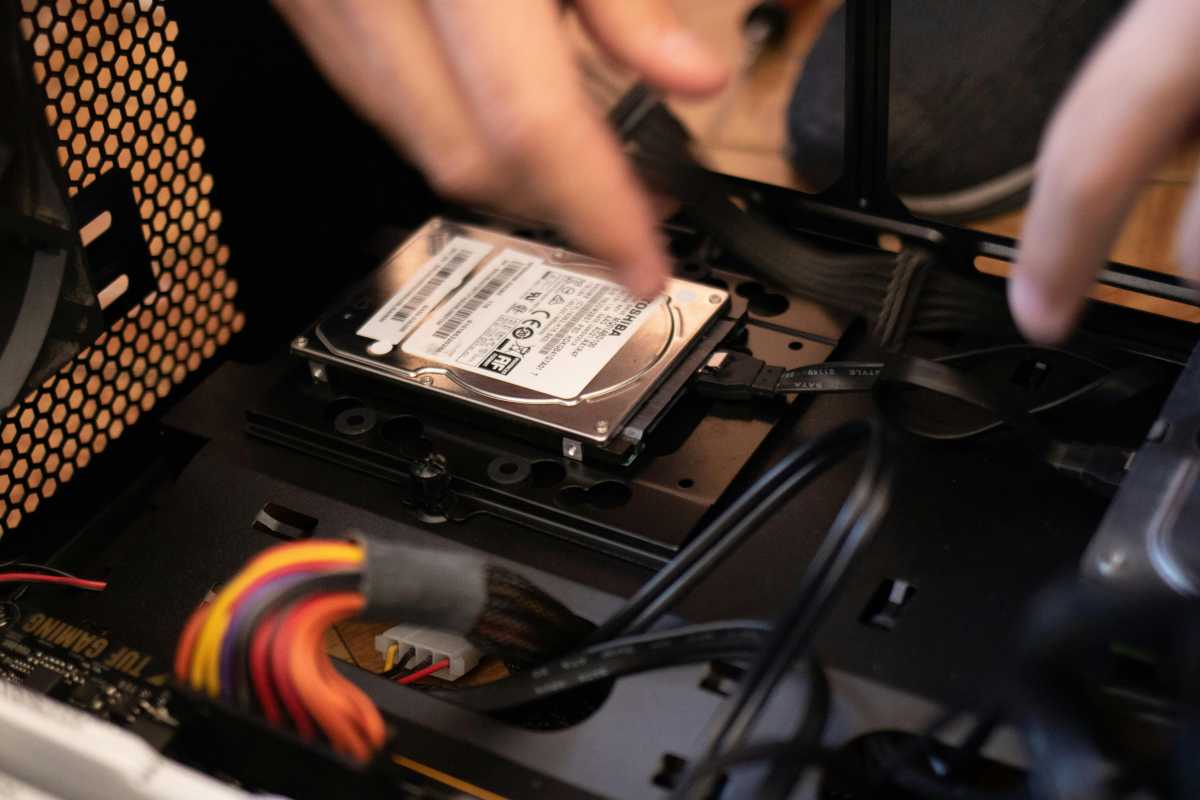The old saying that goes, “If you don’t know history, you’re bound to repeat it,” can be just as easily applied to PC builder history as to anything else. So, in the spirit of not repeating the mistakes that others have made — some very costly, too — here’s a list of the biggest PC builder regrets that keep popping up online in forums time and time again.
Going too budget and not future-proofing the PC
There’s a strong argument for chipping away at the overall cost of your rig by buying cheaper hardware components, but how much performance you will forfeit by doing this isn’t always apparent at the time you build.
A classic example of that is if you’ve only invested in a modest video card but suddenly find yourself not able to play games at the resolution you want. You might have even upgraded your monitor from say a 1080p to a 1440p one but still find you can only play at 1080p because of your bottlenecked GPU. So budget where possible, but also think of the specs you need down the track.
Buying newly released components a little too soon
One Redditer recently bemoaned buying a water-cooled heatsink as soon as it was released only for it to break shortly thereafter. Yep, without proper research by reading good reviews, you’re almost guaranteed to buy at least one piece of hardware that has a flaw — and if you buy too early you won’t find proper reviews online.
Even if that component doesn’t break, it can still cause you a lot of anxiety if others have found flaws in it and it weighs on your mind. We saw that with owners of Intel 13th- and 14th-generation CPUs. Some were living on the edge everyday not knowing if their expensive CPUs were going to succumb to the voltage instability issues these processors were discovered to have. So, wait a while and do your research for best results.
Forgetting just how much heat a PC makes
Fact 101 about PC building is that PCs produce a lot of heat. That seems straightforward enough to remember, but that one point is often overlooked in the pursuit of more power for the CPU, GPU, and PSU.
I‘d like to apply an Uncle Ben quote from Marvel’s Spiderman here, because it seems fitting: “With great power comes great responsibility.” In this case, doing the responsible thing when you’re building a powerful PC is to give equal consideration to your PC’s cooling.
There are many ways to do that, but one of the most effective ways is to find a case with a big enough footprint and with decent airflow. You’re also going to want to buy cooling components that have a track record of being able to effectively cool what you want to put inside your PC.
Not buying all the components at the same time
Although you have to put down more cash upfront to buy all your components at the same time, doing that can actually save you money in the long run. PC builders on Reddit have pointed out, and quite rightly so, that if you buy your components over time, you can’t properly test that they work and/or are compatible with each other until you have them all.
In the meantime, you’re burning up your warranty periods on the ones you do have, which could mean you have to forfeit replacements if you eventually do find problems.

Buying all the PC’s components at once means you can test them within the warranty period.
Buying too much into the RGB hype
Don’t get me wrong, RGB lighting can look amazing in a PC. But if you’re going to go all out with it, you must also be prepared to do the maintenance involved on it too, which can be substantial. What can go wrong with humble RGB lighting, you ask? Surprisingly, a lot!
You may have to deal with LEDs that die, lights that reflect off your screen too much, or lights that are showing incorrect colors. Then there are possible cable management issues in your PC, or issues with syncing up the effects, or with software that doesn’t work as it should.
Suffice it to say, sometimes just a humble PC build free of RGB is easier to manage, and it can look just as good.
Installing noisy fans
It’s an often-overlooked fact that some PC fans are super loud — even if they are doing a decent job cooling down your rig.
You shouldn’t underestimate how annoying loud fans can be. They can affect your own enjoyment of your PC, not to mention the people you live with. In fact, one PC builder recently expressed their dismay online that they couldn’t use their PC when their partner was in the room — their PC’s fans were so audible they were just driving them nuts.
Further reading: How to buy a decent CPU that’ll last you at least 5 years




